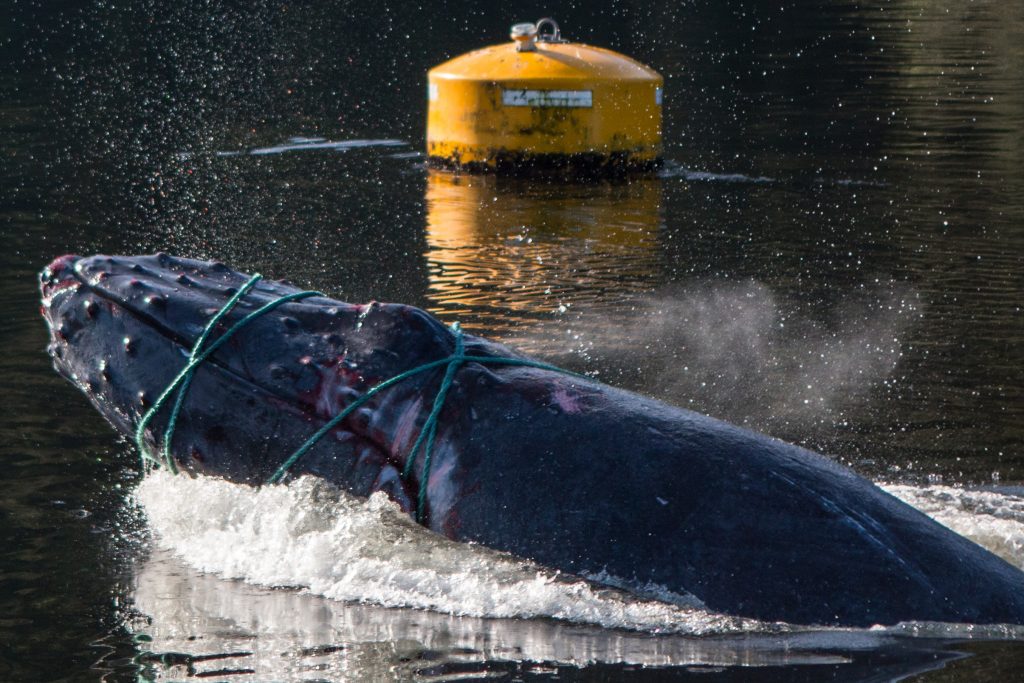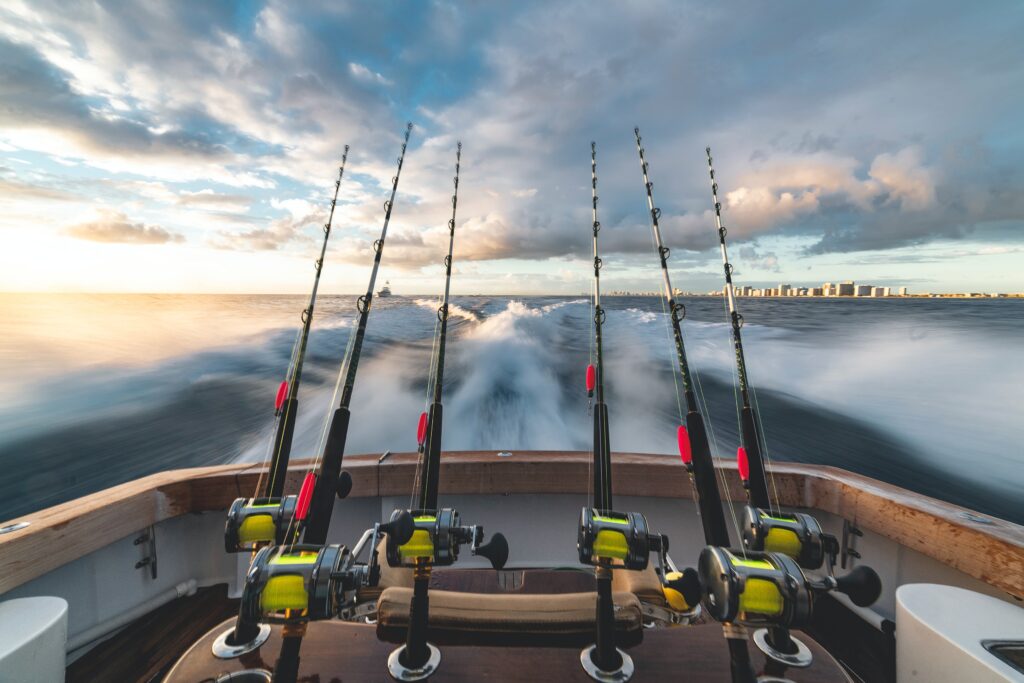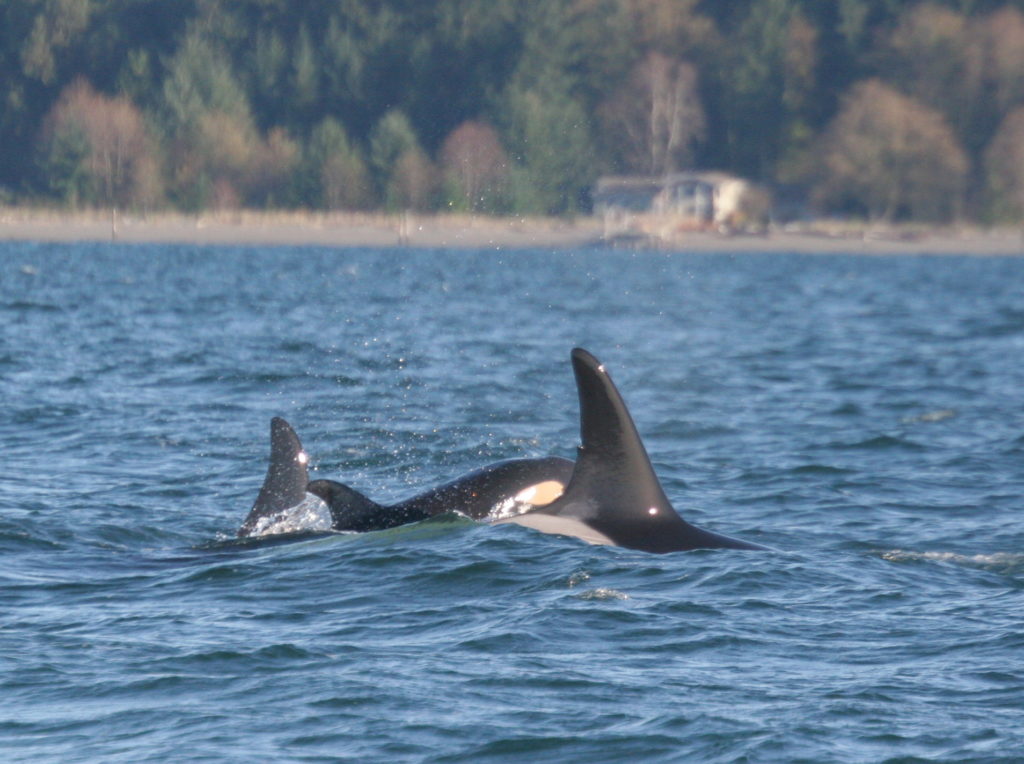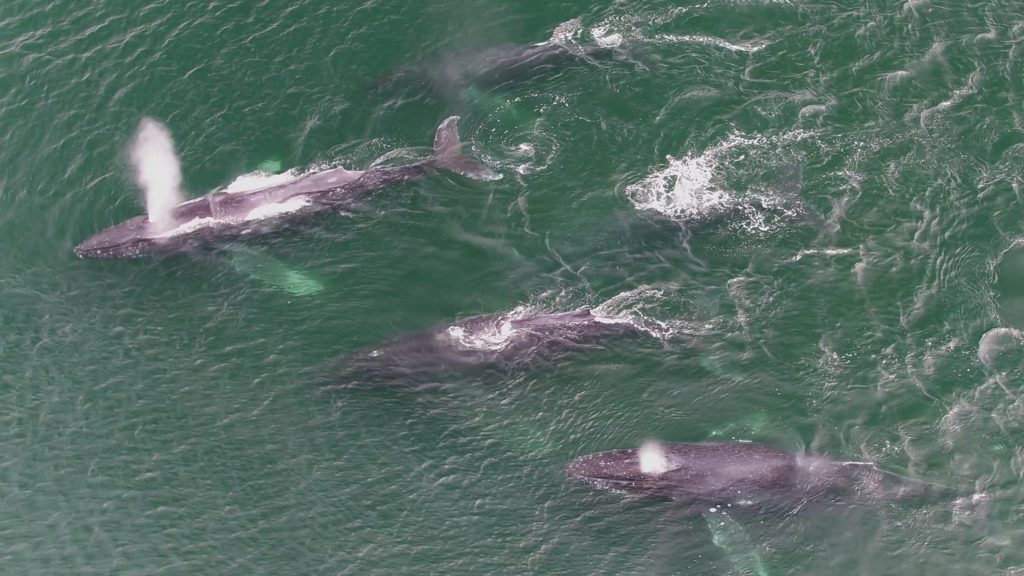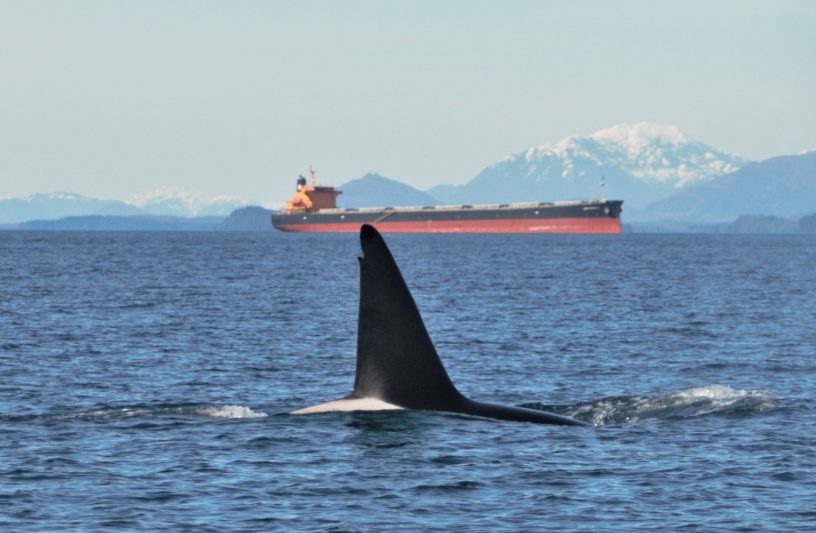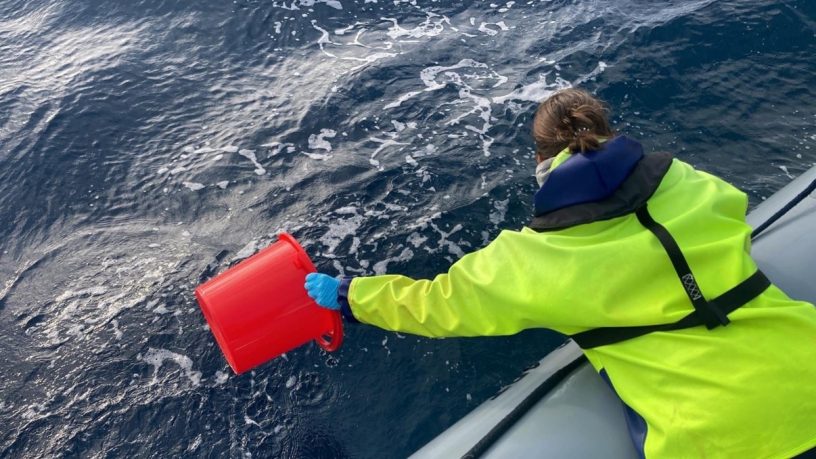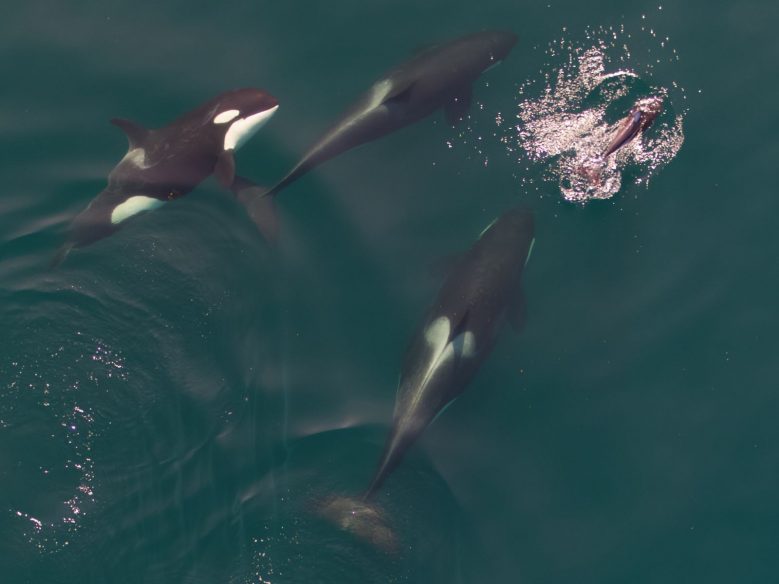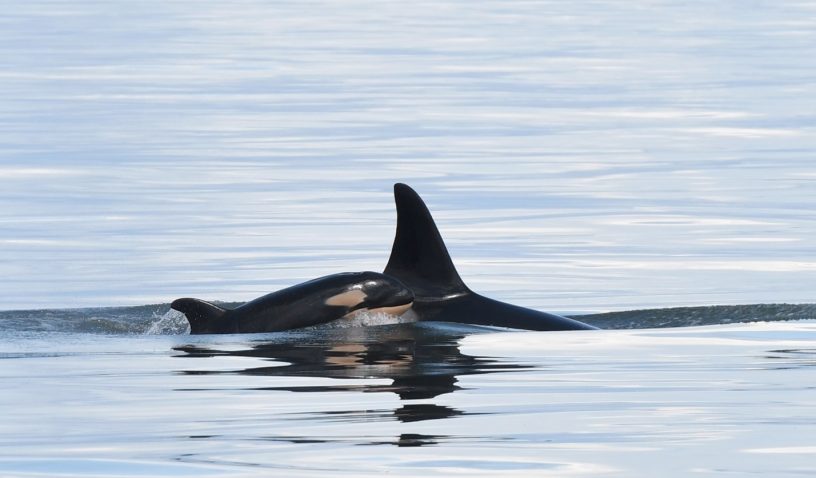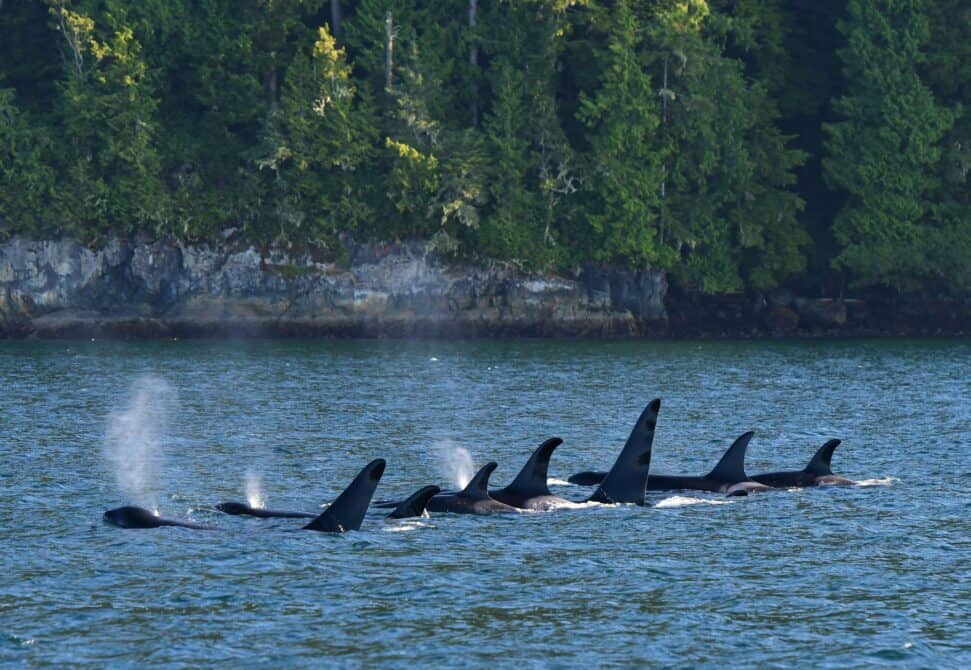
Ocean Wise research reveals high contaminant levels in marine sediment, exposing threat to killer whale populations
Vancouver, BC – Hotspots of high contaminant levels were identified within Southern Resident Killer Whale critical habitat, according to a new study by Ocean Wise’s Pollution Tracker Program. This finding has shed light on the pressing concerns surrounding the health of at-risk killer whale populations in the northeastern Pacific.
In a scientific paper published on July 14 in the journal Archives of Environmental Contamination and Toxicology, new findings are shared on toxicity levels in sediment samples taken from sites along the British Columbia coast. The findings show that at-risk killer whales and their main prey, Chinook Salmon, are directly exposed to a variety of contaminants that may be constraining their recovery.
“Resident killer whale populations are already vulnerable, and these findings indicate that they may be exposed to high concentrations of toxic metals in their critical habitat. Salmon and killer whales are both important in our ecosystems, so it’s very concerning that the migratory Chinook Salmon and the resident killer whales that consume them are being exposed at high concentrations,” said Ocean Wise Research Scientist Joseph Kim. “This could mean bad news for the health of the population.”
Toxic metals refer to metals and metal compounds that negatively affect organism health. They are a group of materials that occur in the environment and can originate from natural sources, such as bedrock, volcanoes, and forest fires, or from anthropogenic sources, like mines, metal smelters and refineries, and sewage treatment plants. Some of the most common ones are arsenic, cadmium, copper, nickel, lead and mercury – the toxic metals focused on in sediment samples in this study. Mercury, cadmium, copper, and lead and mercury have been identified as primary contaminants of concern for Chinook Salmon and resident killer whales, respectively.
In partnership with multiple partners including First Nations communities, community organizations, port authorities, industry, and government agencies, sediment samples in this study were taken at 98 sites along the British Columbia coast. Hot spots of toxic metals were identified at various locations along the coast [where resident killer whale populations feed on Chinook Salmon, and where juvenile Chinook Salmon rear prior to their seaward migration. These areas are crucial for the survival and recovery of resident killer whales, and a reduction of availability or quality of their primary prey, Chinook Salmon, due to toxicity, may both directly and indirectly affect them.
In order to test the sediment for toxic metals, subtidal surface sediments were collected in a stainless‐steel grab sampler. A minimum of two samples were collected at each site, and a combination of shallow and deeper samples were collected. Samples were stored at -20°C and sent to accredited laboratories for analyses, where they were tested for a total of 36 chemical elements.
This study builds on Kim’s previous research on toxicity and contaminants along the coast of British Columbia, including previous sediment sampling research on the risks of persistent, bioaccumulative contaminants such as polychlorinated biphenyls (PCBs) and polybrominated diphenyl ethers (PBDEs) to northeastern Pacific Northern and Southern Resident Killer Whale populations. Pollution Tracker conducts scientific research on hundreds of contaminants of concern in mussels and nearshore ocean sediments and is part of the Ocean Wise Plastic and Pollution initiative. The Ocean Wise Pollution Tracker Program is the first coast-wide contaminant monitoring program in Canada.
About Ocean Wise’s Pollution Tracker Program
The Pollution Tracker Program is the first coast-wide contaminant monitoring program in Canada. In partnership with multiple partners – First Nations communities, community organizations, port authorities, industry, and government agencies – hundreds of chemicals are being analyzed in marine sediment and shellfish to track trends over space and time. Pollution Tracker provides baseline data for a wide range of contaminants that help us identify the source, as well as determine risks to marine life.
About Ocean Wise
Ocean Wise is a globally focused conservation organization on a mission to restore and protect our oceans. Through research, education, public engagement, and international collaborations, we empower communities to fight three major ocean challenges: ocean pollution, overfishing and climate change. By equipping and empowering individuals, communities, industries, and governments, we can create a future where people and our oceans can thrive. Ocean Wise is headquartered in Vancouver, British Columbia with staff across Canada, Mexico, and Chile, and operates conservation projects that make national and international impact.
Posted November 9, 2023 by Cayley Elcombe
